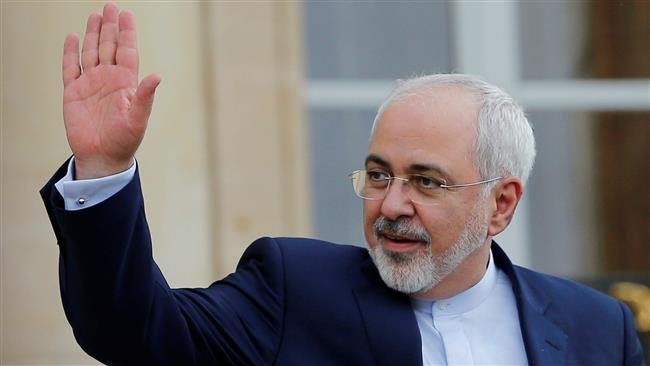Zarif in Tashkent, seeking Iran’s SCO accession

TEHRAN – While the Euro zone is losing one of its stars in the wake of a Brexit leave vote, the Shanghai Cooperation Organization (SCO) members, including Tehran in its observer capacity, have convened in Tashkent to consolidate bonds.
Having wrapped up his third round of European visit, the Iranian foreign minister represented Iran in the event, seeking a tentative, initial okay on Tehran’s membership in the growingly influential body, among other things.
While Iran submitted an accession application to the SCO back in April 2008, its membership was hindered by its nuclear row with the West.
Now, it seems Iran is facing a less bumpy route to accession to the organization after it signed a pact with global powers in July 2015. Accordingly, the organization’s state members have shown the green light.
During the organization’s summit in Tashkent on Friday Russian President Vladimir Putin said, “We believe that after Iran's nuclear problem was solved and United Nations sanctions lifted, there have been no obstacles left (for Iran's membership in the SCO.”
Also, President of Kazakhstan Nursultan Nazarbayev was quoted as saying, “The Shanghai Cooperation Organization is a very important organization across the Eurasian space ... Now, it is a very important step in Tashkent. We will admit new members: India and Pakistan. After it we are going to consider the terms of admission of Iran.”
Having wrapped up his third round of European visit, the Iranian foreign minister represented Iran in the event, seeking a tentative, initial okay on Tehran’s membership in the growingly influential body, among other things.
"Kazakhstan repeatedly expressed readiness to positively consider the issue of full-fledged membership of this country in the SCO, the possibility for which will open by practical implementation of the Joint Comprehensive Plan of Action on settling the Iranian nuclear problem,” said Kazakhstan’s Foreign Minister Erlan Idrissov in an interview with the Russian TASS news agency.
The news comes amid reports that the SCO members have failed to reach a consensus on Iran initiating the accession process, rejected shortly after by Iranian Deputy Foreign Minister for Asian and Pacific Affairs Ebrahim Rahimpour.
According to the Iranian official, “Under the SCO regulations, the sanctions regime was a serious obstacle. But, now that we are emerging from international sanctions, the organization has to decide on whether Iran is entitled the right to initiate the accession process.”
The accession of Iran, as a regional, stable powerhouse, to the body can bring about more credibility and clout.
With a populace of nearly 80 million, Iran sits on colossal energy reserves as well as mineral deposits.
Besides, for the regional grouping, the geopolitical position of Iran means to widen its sphere of political influence.
The SCO was founded in Shanghai in 2001, and formed originally as a confidence-building forum to demilitarize borders.
Currently, Kazakhstan, Kyrgyzstan, China, Russia, Tajikistan and Uzbekistan are full-fledged member states of the SCO. Member states with an observer status include Afghanistan, Belarus, India, Iran, Mongolia and Pakistan. Dialogue partners are also Armenia, Azerbaijan, Cambodia, Nepal, Turkey, and Sri Lanka.
In July 2015, the members agreed on a 10-year development strategy for the organization in Ufa, Russia’s republic of Bashkiria as well as started the accession process of India and Pakistan.
As laid out in its charter, the organization functions as a forum to strengthen confidence and neighborly relations among member countries and promote cooperation in politics, trade, economy, and culture to education, energy, and transportation.
AK/PA
